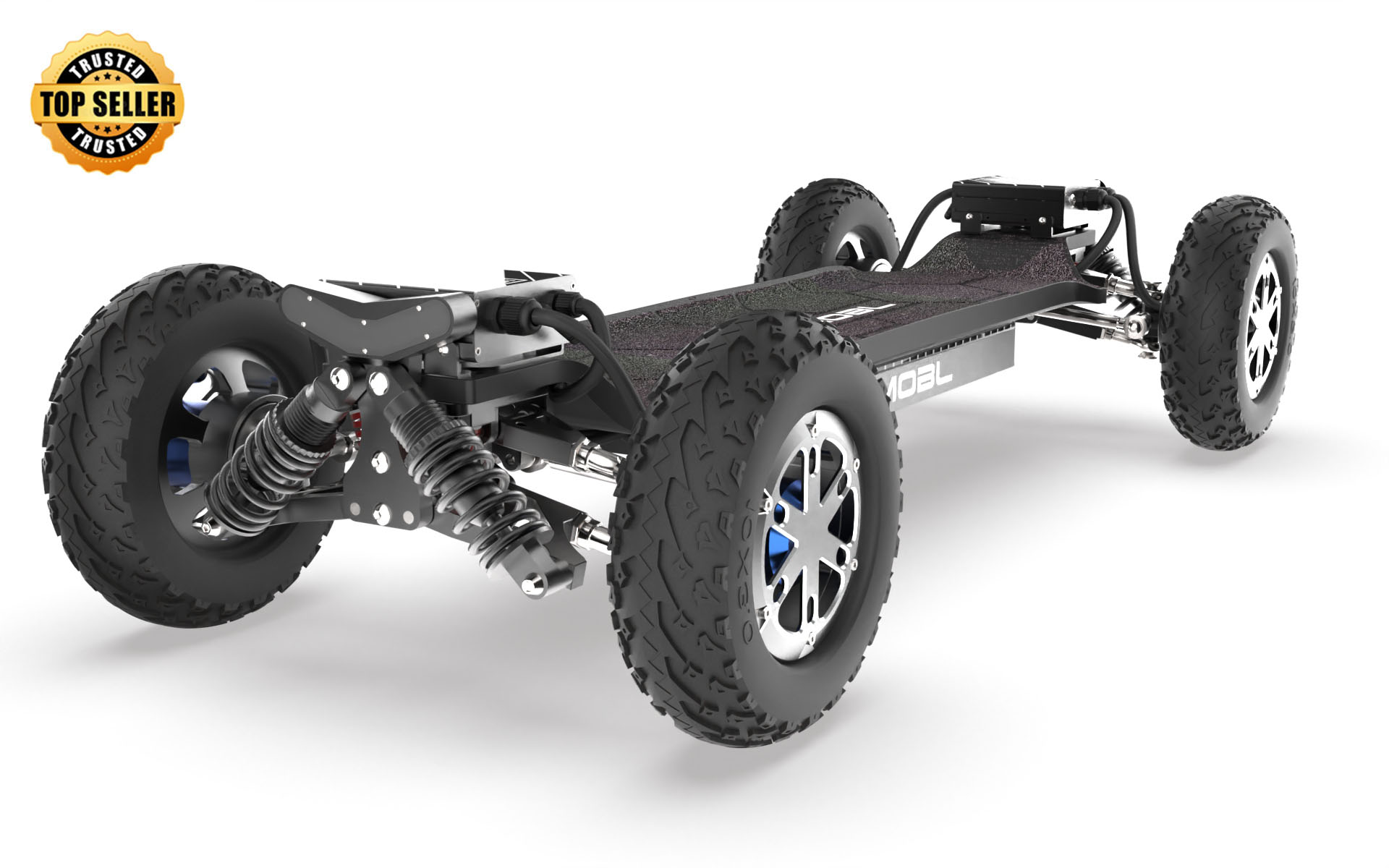Unleash Your Ride: The Ultimate Guide to Upgrading Your Skateboard's Power!
In recent years, motor skateboards have surged in popularity, transforming the way enthusiasts experience their rides. With the advent of electric skateboarding, riders can now enjoy longer distances, higher speeds, and a whole new level of excitement. Upgrading the power of your skateboard can dramatically enhance your overall riding experience, whether you're commuting, cruising, or simply enjoying a day in the park. Imagine zipping along at exhilarating speeds, feeling the wind in your hair while effortlessly gliding over hills and through city streets. This guide will walk you through everything you need to know about upgrading your skateboard's motor or deciding whether to invest in a brand-new motor skateboard altogether.

Understanding Motor Skateboards
A motor skateboard is essentially a traditional skateboard equipped with an electric motor that propels it forward, allowing for greater speed and efficiency compared to manual boards. There are various types of motors available, including hub motors and belt-driven systems, each offering unique advantages. Hub motors are typically integrated into the wheels, providing a sleek design and minimizing maintenance. On the other hand, belt-driven motors often deliver more torque and acceleration, making them ideal for those who crave power. The mechanics of motor skateboards involve an electric motor, a battery, and a control system that work together to create a seamless riding experience. By converting electrical energy from the battery into mechanical energy, these motors significantly improve performance, enabling riders to tackle steeper inclines and longer distances with ease.
Evaluating Your Needs: New Purchase vs. Motor Replacement
Before diving into a purchase or a motor replacement, it's essential to evaluate your needs. Consider factors such as your budget, how you plan to use your skateboard, and your personal preferences. If you're a casual rider who enjoys short commutes or leisurely rides, upgrading an existing motor skateboard might be the more budget-friendly option. However, for those seeking high performance, speed, and advanced features, investing in a brand-new motor skateboard could be worthwhile. It's also important to assess the condition of your current board. If it's seen better days, a new skateboard might be a better investment. A friend of mine, who started with a basic board, opted for a motor upgrade and found it to be a game-changer for his daily rides. However, after a few months, he decided to splurge on a new electric skateboard that offered enhanced features and performance capabilities.
Choosing the Right Motor for Your Skateboard
When selecting a motor for your skateboard, several key considerations come into play. First and foremost, assess the power ratings of potential motors. Higher wattage usually translates to better acceleration and speed. Next, ensure compatibility with your existing components, such as the battery and control system. It's crucial to select a motor that works harmoniously with the other parts of your skateboard to avoid performance issues. Additionally, consider your riding style. Are you an adrenaline junkie looking for speed, or do you prefer a more relaxed riding experience? Different motors cater to varying preferences, so understanding your needs will help you make an informed decision. For instance, my friend who loves downhill riding found that a high-torque motor significantly improved his ability to tackle steep slopes, whereas another friend who enjoys cruising opted for a motor designed for efficiency over speed.
Installation Process: Upgrading Your Skateboard
Upgrading your skateboard with a new motor can be a rewarding DIY project if done correctly. The installation process generally involves several steps: first, gather all necessary tools and components, including a wrench, screwdrivers, and the new motor. Next, carefully remove the existing motor from your skateboard, ensuring that you disconnect all wiring properly to avoid damage. After that, install the new motor, ensuring that it is securely mounted and properly aligned. Connect the wiring and make sure all electrical components are functioning before taking it for a test ride. For those who may feel intimidated by the installation process, seeking professional help can be a wise decision. A local shop specializing in electric skateboards can provide the expertise needed to ensure a safe and successful upgrade. My own experience with a DIY installation was a mix of excitement and apprehension, but with the right resources, it turned out to be a smooth process!
Safety Considerations and Maintenance Tips
Safety should always be a top priority when riding a motor skateboard. Ensure you wear appropriate safety gear, including a helmet, knee pads, and elbow pads. Familiarize yourself with local regulations regarding electric skateboards, as laws can vary widely by area. Additionally, regular maintenance of your motor skateboard is crucial for optimal performance and longevity. Keep the motor clean and check for any loose wiring or components after rides. Regularly inspect the battery to ensure it's charging correctly and replace it if you notice any degradation in performance. Adopting a proactive maintenance routine can save you from unexpected repairs and enhance your riding experience.
Maximizing Your Skateboarding Experience
In conclusion, upgrading your skateboard's power can significantly enhance your riding experience, offering more speed, range, and enjoyment on your journeys. Whether you choose to invest in a new motor skateboard or replace the motor in your existing board, understanding your needs and the options available is essential. With the right motor and proper installation, you'll be well on your way to unleashing the full potential of your ride. So, take the plunge and enjoy the thrill of electric skateboarding!







تعليقات